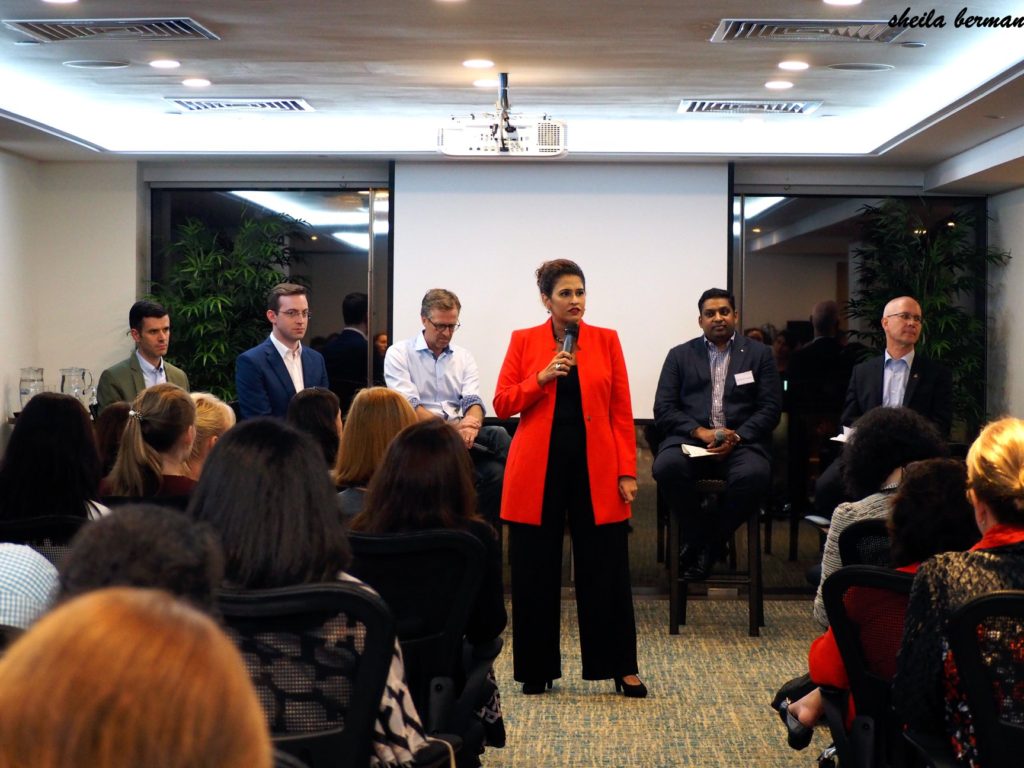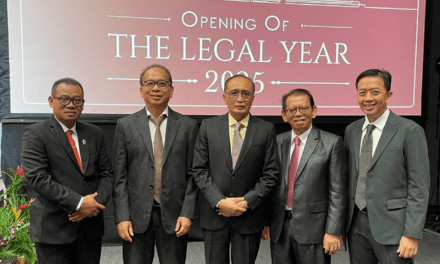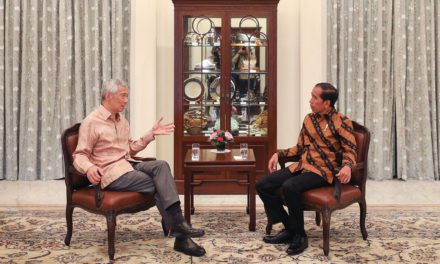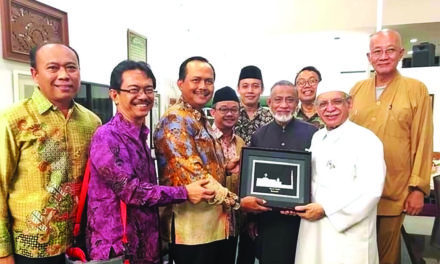A professional womens’ association celebrates International Women’s Day (IWD) in March with an ALL-MALE panel discussion
BASED on current trends, it will take 217 years before women will achieve equal financial parity. In the pursuit for an equal future, PrimeTime Business and Professional Women’s Association (PrimeTime) have started a conversation on the role of male allies and how they can contribute to the #pressforprogress movement, the only women’s organisation in Singapore to have a deliberately all-male panel for IWD.
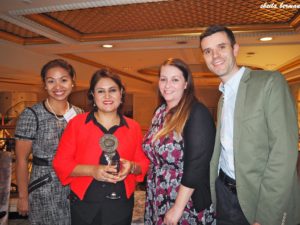 The event “An Equal Future”, took place on 8 March 2018, and was organised in conjunction with International Women’s Day, and featured:
The event “An Equal Future”, took place on 8 March 2018, and was organised in conjunction with International Women’s Day, and featured:
• Ambassador Karsten Warnecke, Executive Director, Asia-Europe Foundation (ASEF)
• Richard Stone, Director, Talent & Organization Effectiveness – AMEA at Mondelz International
• Jonathan O’Byrne, Founder and CEO at Collective Works
• Fredrik Härén, Author and Keynote speaker
• Ganeswaran Subramaniam, Senior Vice President, Head, Personal Insurance, SEAsia, AIG
PrimeTime’s Joanne Flinn, author, futurist, and founder of Project Wings moderated the conversation with these five senior male leaders about the role of men in creating gender parity in the workplace, in business, and in politics.
The over 70 mixed gender audience was encouraged to participate in the discussion via the Pigeonhole platform, where they could post questions and vote for the topic to discuss. With over 40 percent of votes, the top male ally action that could be done now was to call out sexist comments in all male groups. Others that turned out high on the votes were: “Explore options to improve quality in hiring and pay” at 32 percent, and “Open discussion with female colleagues about their experiences” at 16 percent.
Elephants in the Room
Joanne Flinn kicked off the discussion by introducing four colourful elephants in the room, each representing:
• Yellow: How we feel – We want to feel joy in an equal future
• Green: Where we live – Represents our home, the Planet. In an equal future, we have a green, alive planet. Air and water that is clean.
• Blue: What we value – In an Equal Future, will the values that drive us be about money and the financial system? Or will other qualities be valued?
• Purple: Who we are – The point of the evening: what will it take for Equality in This Generation?
Pink + Blue= Purple. It is possible.
Joanne asked everyone to consider the realities on the motivation and actions that can allow this generation to experience an equal future, and co-creating that reality. The speakers talked about how they saw themselves as a male ally, and how they help women achieve equal economic parity at work. They agreed that the idea of feminism for men should start at home, then the workplace and move onward from there.
Take Action Now
Joanne asked the panel what it would take to make equality happen now.
- Meritocracy at the Workplace
The current environment has left the decision for equality to very few people (usually men) in power. Women are performing better in education, and there is no reason why women cannot achieve the same as men at the workplace.
However, even with the same qualifying traits, women tend to undersell themselves at interviews and performance reviews, while men will oversell themselves. Society has raised women to be apologetic, and at the workplace, masculine traits are incentivised. As such, it is important that interviewers understand that the odds are already stacked against women from the outset.
- Equal Responsibilities: Paternity Leave
Men should take equal responsibilities for family duties. Society’s expectation is that when women have children, their first priority is to stay home and care for children, while men continue on with their careers. Moving towards an equal future, companies like Spotify have introduced paternity leave to allow male employees the same opportunity to spend time with their children. Many other organisations have followed suit, and as more organisations do this, it can result in closing the pay gap and much happier families where both parents are able to give quality time to their children’s upbringing.
- Policies: Government and Organisations
Following Iceland’s lead, the United Kingdom recently released a new government mandate that requires employers with 250 or more staff to reveal the difference between what their female and male employees make by April 4.
Governments can make changes to their policies immediately if they want to. Take Canada’s Prime Minister, Justin Trudeau, for example. He succeeded in setting up the first government with equal numbers of male and female, and his government is functioning well. This clearly shows that leadership can make immediate changes towards parity, with immediate results.

Equality: Perception & Reality
Participants were then broken up into three groups to discuss the definition of equality and what an equal future looks like. Some of the points that were brought up are:
- Equality does not mean being the same – Individual qualities complement each other
- Equality starts from home with shared responsibilities
- Recognise and respect skills and contributions
- To have an equal voice
- Freedom to make choices
- Removal of gender specific roles
- Education for women
- Children and teenagers have the freedom to express their gender fluidly
- Be physically safe in public spaces where women currently do not fit the mould
Equality Together
Equality needs to be desirable to both men and women, and we should all have a role to play in it.
Lavinia Thanapathy: “I have been President of PrimeTime for 3 years because I believe in the power of women helping each other to get ahead. This is our superpower. With women like us, working with our male allies, accelerating the pace of change will come sooner than in 217 years!”

